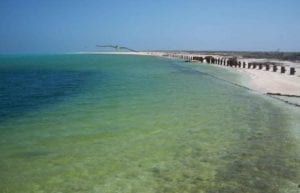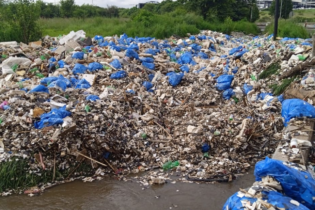The City of Cape Town has advised residents that the algal blooms in False Bay are naturally occurring, non-toxic and not reflective of wastewater quality in the city.
This comes after news outlets linked the algal blooms to issues inland. “Alarmist stories have been carried by some news outlets after an article was released by a UCT scientist about water quality matters,” the City noted in a statement. “The City has not seen the findings of the research first-hand but understands that the scientist has requested certain news outlets to print corrections to their stories to more accurately reflect the true state of affairs,” it said.Wastewater upgrade works not the culprit
In addition the municipality also clarified reports that upgrades at the Zandvliet wastewater treatment plant inland were related to the algal blooms. “Importantly, it must be noted that the City does not discharge untreated sewage into the river,” it explained. It continued: In general, the treated effluent discharged from the City’s wastewater treatment plants achieve a compliance rate of more than 80% with the standards required by the Regulator; and the plants operate in accordance with ISO standards.”When cold meets warm
According to the City the algal blooms are a normal occurrence on the South African coastline and are caused by ocean upwelling events that bring colder, nutrient rich water, which comprises of dinoflagellate cells, into warmers surface waters.“The combination of nutrients, warmth and sunlight causes the cells to bloom,” the municipality said.
“The City is committed to ensuring that it continues to evolve its processes to manage waste and to ensure that it does absolutely everything in its power to put in place enhanced processes for sustainable urban management,” it concluded.





